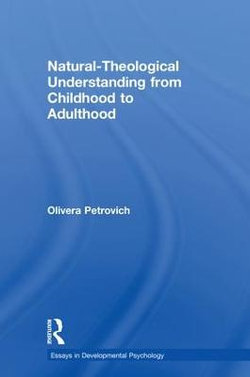It is commonly assumed that young children only begin to think about God as a result of some educational or cultural influence, perhaps provided by their parents. Natural-Theological Understanding from Childhood to Adulthood asks if there is anything about God that children can know independently of any specific cultural input; does their knowledge of God simply come from their everyday encounters with the surrounding world?
Whilst children's theoretical reasoning in biology, physics and psychology has received considerable attention in recent developmental research, the same could not be said about their religious or theological understanding. Olivera Petrovich explores children's religious concepts, from a natural-theological perspective. Using supporting evidence from a series of studies with children and adults living in as diverse cultures as the UK and Japan, Petrovich explains how young children begin to construct their everyday scientific and metaphysical theories by relying on their own already advanced causal understanding. The unique contribution that this volume makes to the developmental psychology of religion is its contention that religion or theology constitutes one of the core domains of human cognition rather than being a by-product of other core domains and specific cultural inputs.
Natural-Theological Understanding from Childhood to Adulthood is essential reading for students and researchers in cognitive-developmental psychology, religious studies, education and cognitive anthropology.




Share This Book: